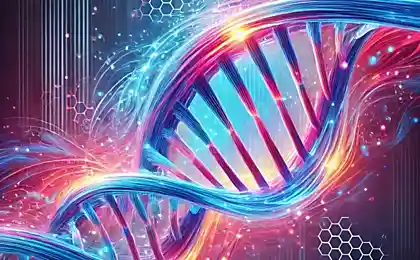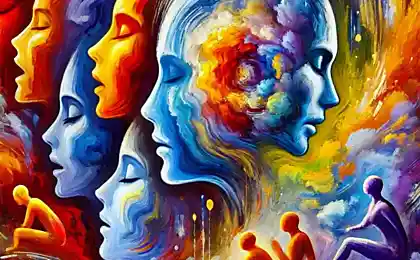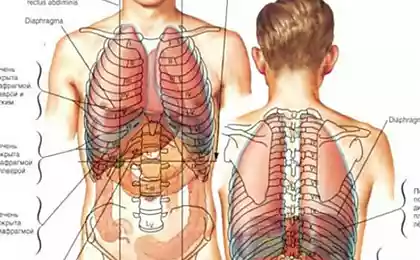274
How science helps us understand ourselves better
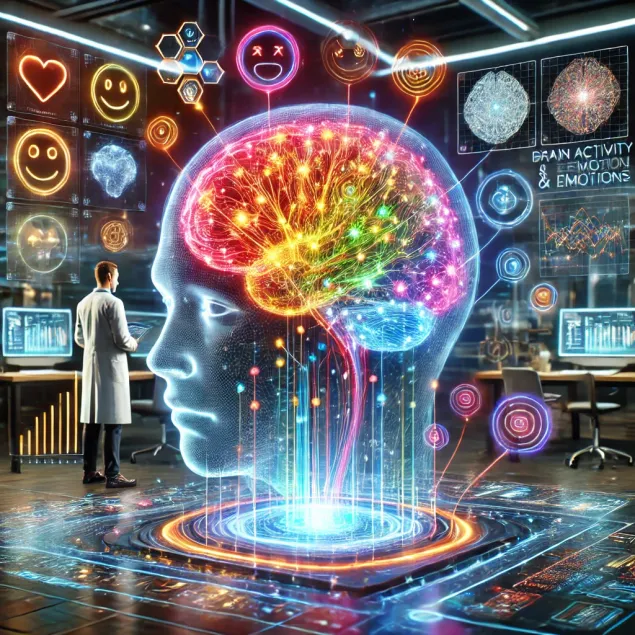
Introduction. Never before has humanity had such broad access to information about how we are made from the inside—physically, genetically, and psychologically. Modern science, combining the data of neuroscience, psychology and genetics, reveals the secrets of our thoughts, habits and emotions. Research helps explain why some people overcome difficulties more easily and others are more susceptible to stress; why genes affect the propensity for certain habits; and how the brain builds chains of behavior, guided by centuries of evolution. In this article, we will look at how science helps us better understand ourselves and what this knowledge provides for personal development and health.
Psychology: How our habits form and work
Psychology as a science has come a long way from the philosophical reasoning of ancient thinkers to rigorous experiments confirmed by magnetic resonance imaging (MRI) and statistical studies. Today, experts believe that most of our habits are rooted not only through repetition, but also through mental reward: any action that evokes pleasant emotions or relieves tension tends to “seal” in the mind and repeat itself again.
According to the American Psychological Association, up to 40 percent of our daily activities are done on autopilot, out of habit rather than a deliberate decision. For example, if a person always eats sweets when he or she is nervous, the brain records, “Sweetness reduces stress,” turning this process into an automatic pattern. Understanding these mechanisms helps to change unwanted habits and replace them with healthier alternatives.
- Stress management. Psychologists have long found that our cognitive patterns — that is, automatic thoughts and beliefs — significantly affect the ability to cope with stress. If you retrain your brain to think positively or at least realistically, you can reduce anxiety.
- Creating new habits. To strengthen healthy patterns, it is advised to act in stages. In the first stage - awareness of the old habit, in the second - finding a new one that will perform the same function (for example, walking instead of a cigarette), in the third - regular repetition, fixing an alternative scenario.
Thus, psychological research gives us the tools to change life for the better, working not only with the effect (habit), but also with the root cause (emotional benefit).
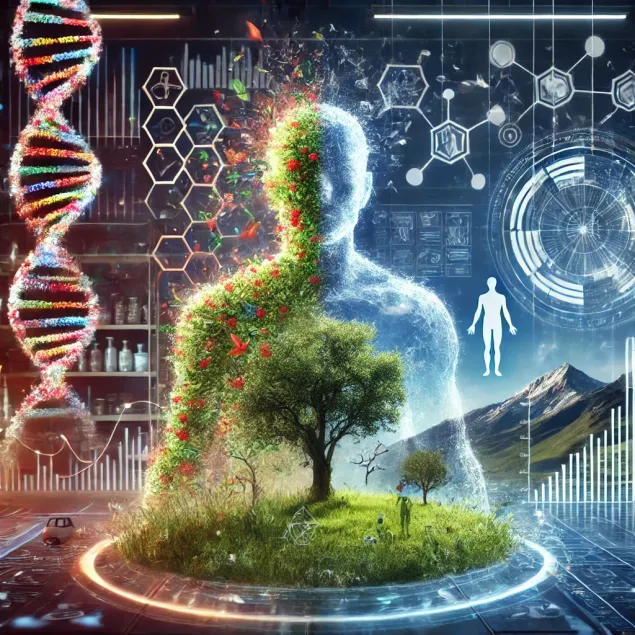
Genetics: from predispositions to real traits
In recent decades, genetics has made a breakthrough through the sequencing of the human genome and the development of methods to study the work of individual genes, their interaction and the impact on the psyche. However, the results of such studies are often controversial: how much do genes determine our fate, behavior and even emotional background? On the one hand, genesNeurotransmitters that affect mood, depression or increased anxiety. On the other hand, scientific evidence suggests that even if a person has a genetic predisposition to a particular disorder, the implementation of that “scenario” depends on the environment and personal experience.
For example, the National Institute of Mental Health (NIMH) cites the results of studies where twins with the same set of genes showed or did not manifest mental pathologies depending on experience, upbringing environment and stress level. This suggests that genes are just an initial map that we can follow or not. From education, culture, stressful events and even from their own attitude to difficulties largely depends on whether the “adverse” genetic predisposition is activated or not.
- Epigenetics as a clue. Epigenetics studies how “turning on” or “turning off” genes is influenced by external factors: environment, lifestyle, nutrition, stress.
- The role of environment and education. Family environment, culture and educational environment often have a stronger influence on personality development than individual gene variations.
- Individual choice. Everyone can change their “psychological trajectory” by working on themselves, treating a specialist, or changing external circumstances, even if they have an unfavorable genetic predisposition.
Understanding genetic mechanisms helps not only explain individual behaviors, but also emphasizes the importance of environmental factors and personal effort in the development of us as individuals.
Neuroscience: Why We Feel the Way We Feel
Neuroscience is a field that never ceases to amaze the scientific world with new discoveries about the work of the brain. It is in the brain that the paths of psychology, genetics and physiology intersect. Research by neuroscientists confirms that our emotions are associated with the activation of certain neural circuits, and habits are formed through complex connections in the basal ganglia. Understanding this allows us to see how finely tuned the brain is:
- Dopamine cycles of joy. When we experience pleasure from food, communication or music, there is a release of dopamine, which consolidates the positive experience. Over time, the brain “remembers” the source of joy and tends to repeat it.
- Amygdala and fear. A brain region called the amygdala plays a key role in fear and anxiety responses. If the amygdala is overactive, a person may be prone to panic attacks or constant anxiety.
- Prefrontal cortex and control. This area is responsible for self-control, decision-making and planning ability. The better the connections in the prefrontal cortex are developed, the more effectively a person is able to regulate his impulses.
Modern technologies, such as functional magnetic resonance imaging (fMRI) and positron emission tomography (PET), allow you to see “live” how the brain responds to various stimuli – from watching a scary movie to participating in social games. Data from scientific bases confirm that the neural networks of our psyche can be “reconfigured” with the help of psychotherapy, mindfulness training, cognitive behavioral techniques, or even certain types of meditation. This means that we are not hostage to our own biology and can learn to feel more balanced and happy.

How all this helps in real life
Knowing how our brains, genes, and psychological mechanisms work allows us to better understand ourselves and others. This understanding can be applied in practice in a variety of areas:
- Managing stress and emotions. Realizing that anxiety can be linked to hyperactivity in certain areas of the brain or learned responses helps treat it as a solvable task rather than a personal weakness.
- Changing habits. When we realize that any habit is formed at the level of neural circuits and strengthened by psychological benefits, it becomes easier to consciously create new patterns of behavior.
- Understanding individual differences. Science teaches us to treat people with respect for their unique experiences and genetics. In a team, family, or friendship, it promotes empathy and acceptance.
- Personal responsibility and self-development. The realization that we can change and strengthen our neural connections, learn new skills at any age, and influence our own susceptibility to stress – all this motivates continuous development.
In addition, many of today’s popular methods of psychological care and personal growth programs are based on the results of neuroscience and psychology research. From cognitive-behavioral therapy to emotional intelligence training, they all use experimentally validated scientific approaches to varying degrees.
Conclusion: The Path to Conscious Development
Science provides us not only with a theory of how our bodies and minds interact, but also with concrete practical tools to improve our quality of life. From knowledge of the heritability of habits and emotions to understanding how neural networks work, these insights reinforce our sense of personal responsibility and provide resources for effective change. Instead of remaining passive observers of our own weaknesses and inclinations, we can become active “engineers” of our personality, correcting bad habits and strengthening useful ones.
Thus, the paths of psychology, neuroscience and genetics converge on one key point: a person is able to know himself and change his life more deeply and consciously than it seemed possible a few decades ago. But to truly take advantage of these scientific discoveries, it is important to remain inquisitive, critically evaluate information, and regularly test new approaches. Science ceases to be a dry theory and becomes a powerful engine of personal growth and social harmony.
Frederick Perls: The Birth of a Neurosis
Secrets of historical artifacts: what do we still not know?






